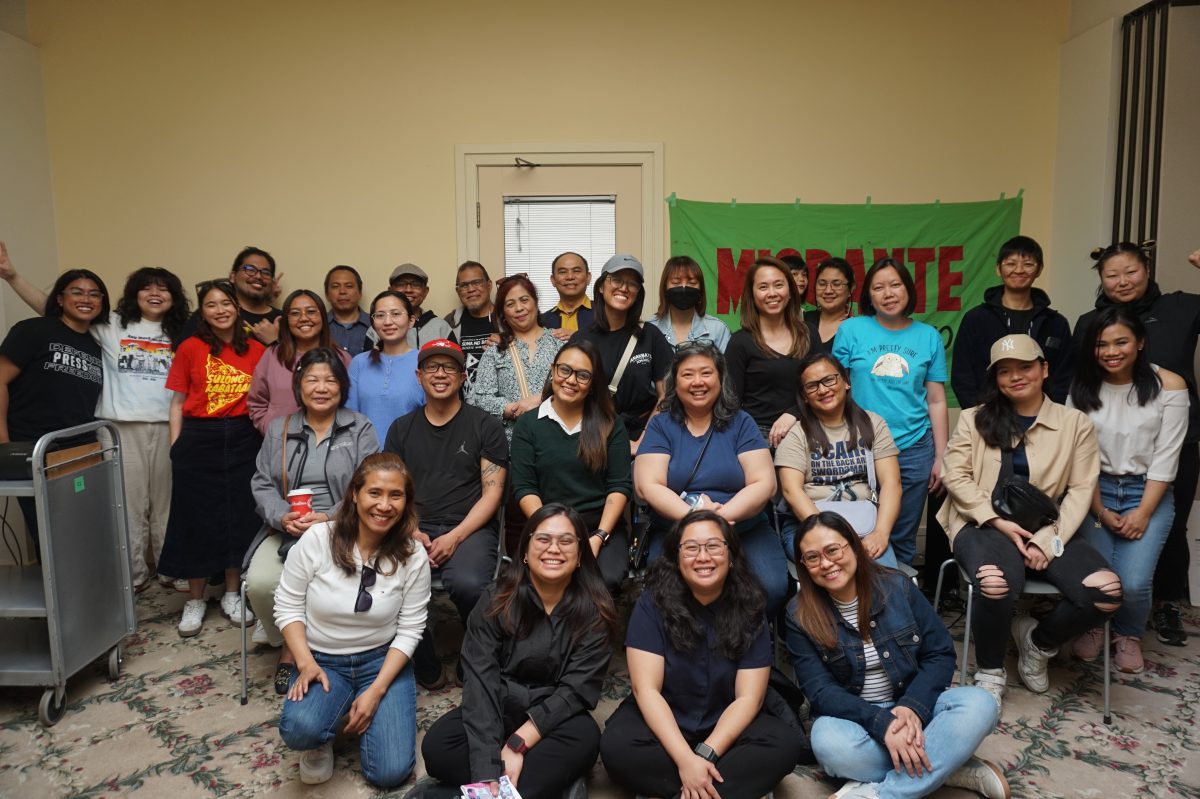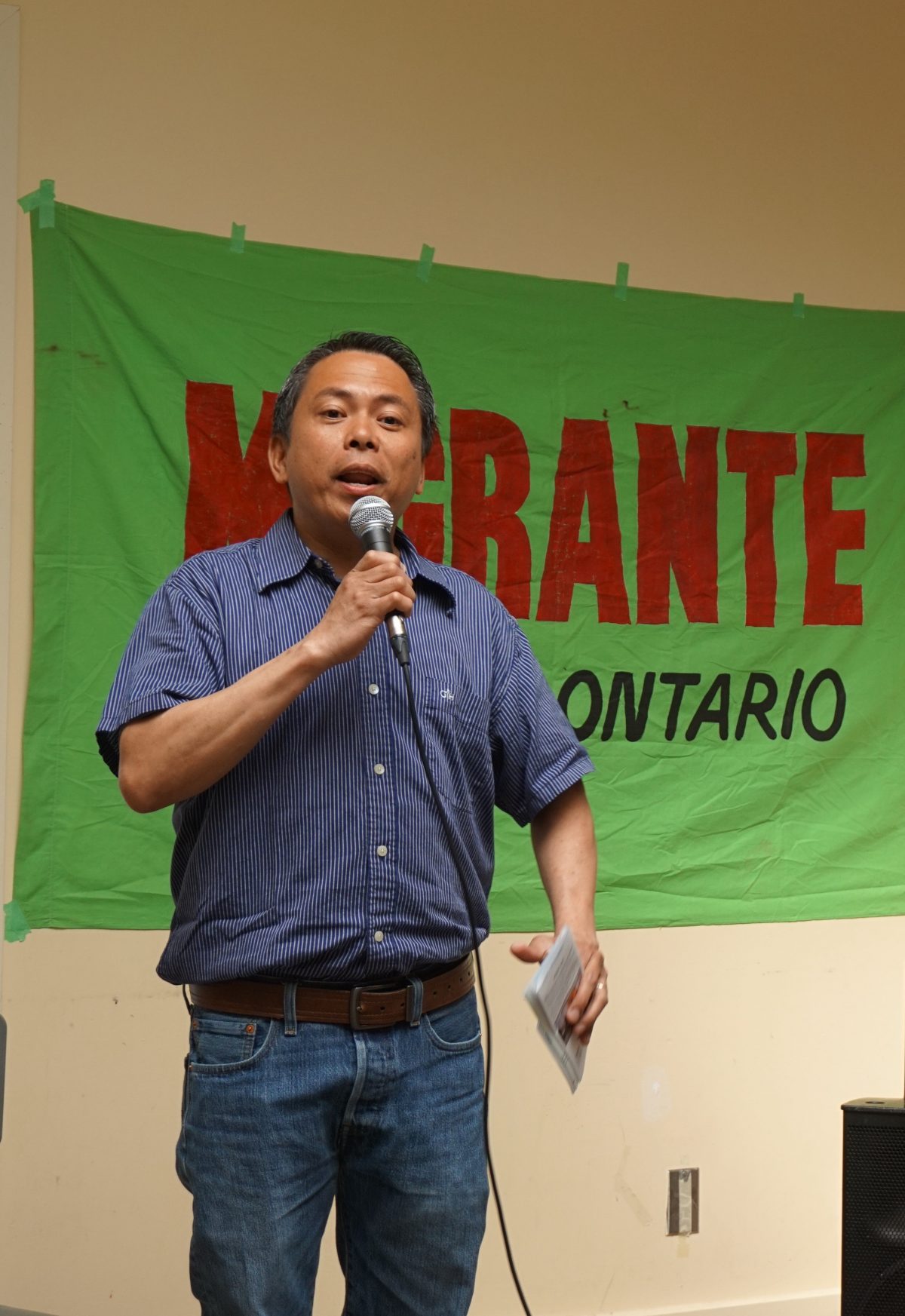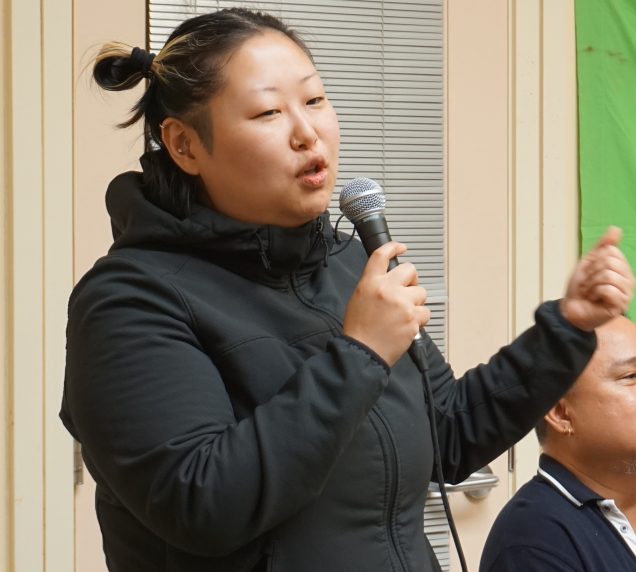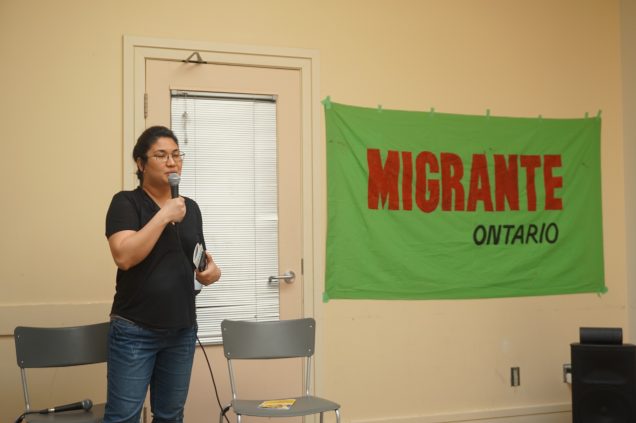Common challenges prompt Pinoys to organize, launch students network
Common challenges prompt Pinoys to organize, launch students network
 Filipino International Students Network launched to help growing number of kababayans seeking study and work opportunities in Canada
Filipino International Students Network launched to help growing number of kababayans seeking study and work opportunities in Canada
May 8, 2024
By Veronica C. Silva
LJI Reporter
The Philippine Reporter

Javier Jardeleza, coordinator for the Filipino International Students Network, says the network is working to be a member of Migrante Canada. The Filipino network was launched last May 4 at the Toronto Public Library.
TORONTO – Faced with a housing crisis, food insecurity and other pressing economic issues, some kababayans in the Greater Toronto Area (GTA) have come together to form a network where they can help each other and be the voice among their peers.
Almost a year in the making, the Filipino International Students Network (FISN) officially launched on May 4 in Toronto with support from the Filipino community and peers outside the diaspora. The idea for the network stemmed from a forum last fall where, in a breakout session, international students expressed interest in building a network of peers.
Javier Jardeleza, FISN coordinator, said that the network was formed to centralize advocacy, campaigns, and education around the challenges and struggles of Filipino international students in Canada. At the launch, Jardeleza contextualized these challenges to what is happening in the Philippines, that is, Filipinos see Canada’s student pathway as a way to alleviate poverty.
International students who complete their studies can work in Canada after their graduation. The work experience they gain may allow them to apply for permanent residence. This opportunity has made the student pathway attractive to many international students, even though they pay more in tuition fees and the required proof of financial capability has recently increased.
In 2023, there were almost 34,000 study permit holders from the Philippines, according to data from Immigration, Refugee, and Citizenship Canada. That’s a jump from only a little more than 25,000 in 2022 and only a little more than 14,000 in 2021. Prior to the COVID-19 pandemic, there were only more than 6,000 permits issued to Philippine passport holders.
The Philippines is one of the top source countries for international students, according to the Canadian Bureau for International Education (CBIE), but trails far behind India and China.
Jardeleza said organizing the network will hopefully result in policy changes as international students can lobby the Philippine government to influence their programs to provide more services to Filipino international students.
The new group will also provide networking opportunities for Filipino and non-Filipino international students, he added.
FISN gained support from another international students group, the Migrants Students United, a member of the Migrant Workers Alliance for Change advocacy network.

Sarom Rho, coordinator for Migrants Students United, speak at the launch of the Filipino International Students Network on May 4 at the Toronto Public Library.
Photos: Veronica C. Silva
Sarom Rho, coordinator of MSU, was at the launch where she shared the gains that migrant students, including former and current international students, have won over the years by coming together and making their voices heard. One of these gains is lifting the 20-hour weekly cap on working off-campus.
“More power will come from Filipino international students fighting with other international students because … we have shared struggles and issues, and therefore need shared plan of action,” said Rho, in an interview with The Philippine Reporter. “We need a multi-racial, multi-lingual movement … I’m glad to see this network (FISN).”
Solidarity
FISN has received overwhelming support from advocacy groups and the Filipino community.
Leny Simbre, chair of Migrante Ontario, spoke at the launch to express their group’s support for FISN. She said supporting FISN is part of their commitment to guide, and in solidarity with fellow Filipinos as they “navigate the challenges and opportunities of studying abroad.”
“We also affirm our collective dedication to fostering a sense of community, belonging, and empowerment among Filipino students in Ontario,” she added.

Mithi Esguerra, board member of Migrants Resource Centre Canada, a non-profit service provider, lends support to the launch of the Filipino International Students Network.
Mithi Esguerra, board member of Migrants Resource Centre Canada (MRCC), a non-profit service provider helping migrants and immigrant workers, was also at the launch to support international students. She noted that when MRCC was organized in 2017, there were only a few Filipino-led service providers of its kind, and then, they were mostly helping temporary foreign workers and caregivers with the challenges they were facing. Today, it is Filipino international students who are facing challenges in Canada, and MRCC is open to helping them as they continue to help their existing clientele, including non-Filipinos.
Esguerra also noted that the demographics of Filipino international students have changed in the last few years. They are now mostly in their prime but are pursuing studying to be able to work – and stay – in Canada.
Jardeleza told the audience of more than 30 in-person and more than a dozen online that FISN, in the near future, aims to be part of the Migrante Canada network, which is part of the global Migrante International network.
In January 2024, IRCC trimmed the number of study permits it will issue to international students by 35%. Most international students land in Ontario.
Comments (0)